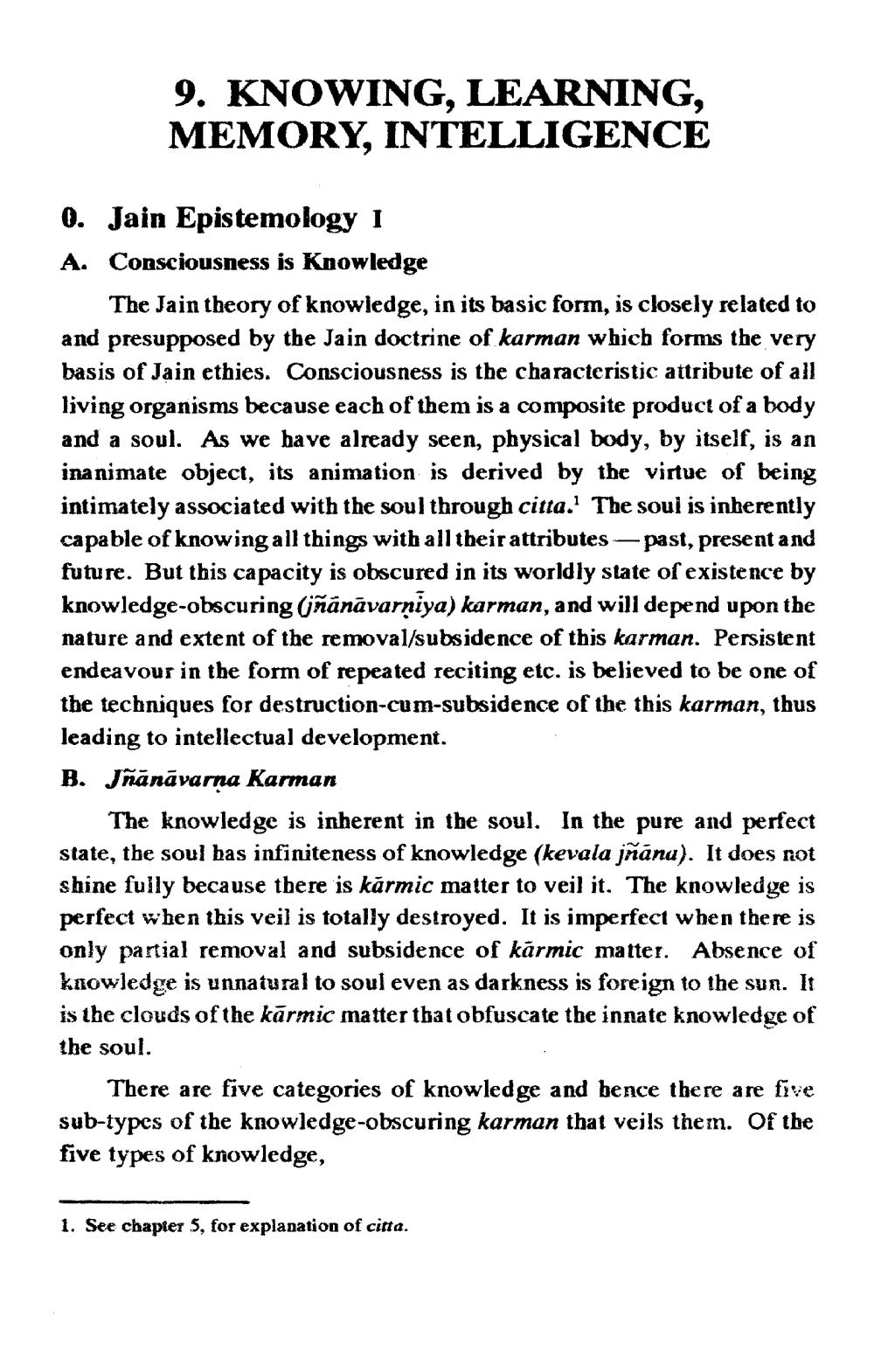________________
9. KNOWING, LEARNING, MEMORY, INTELLIGENCE
0. Jain Epistemology I A. Consciousness is Knowledge
The Jain theory of knowledge, in its basic form, is closely related to and presupposed by the Jain doctrine of karman which forms the very basis of Jain ethies. Consciousness is the characteristic attribute of all living organisms because each of them is a composite product of a body and a soul. As we have already seen, physical body, by itself, is an inanimate object, its animation is derived by the virtue of being intimately associated with the soul through citta. The soul is inherently capable of knowing all things with all their attributes — past, present and future. But this capacity is obscured in its worldly state of existence by knowledge-obscuring (jñānāvarniya) karman, and will depend upon the nature and extent of the removal/subsidence of this karman. Persistent endeavour in the form of repeated reciting etc. is believed to be one of the techniques for destruction-cum-subsidence of the this karman, thus leading to intellectual development. B. Jnānāvarna Karman
The knowledge is inherent in the soul. In the pure and perfect state, the soul bas infiniteness of knowledge (kevala jñāna). It does not shine fully because there is kārmic matter to veil it. The knowledge is perfect when this veil is totally destroyed. It is imperfect when there is only partial removal and subsidence of kārmic matter. Absence of knowledge is unnatural to soul even as darkness is foreign to the sun. It is the clouds of the kārmic matter that obfuscate the innate knowledge of the soul.
There are five categories of knowledge and hence there are five sub-types of the knowledge-obscuring karman that veils them. Of the five types of knowledge,
1. See chapter 5, for explanation of citta.




